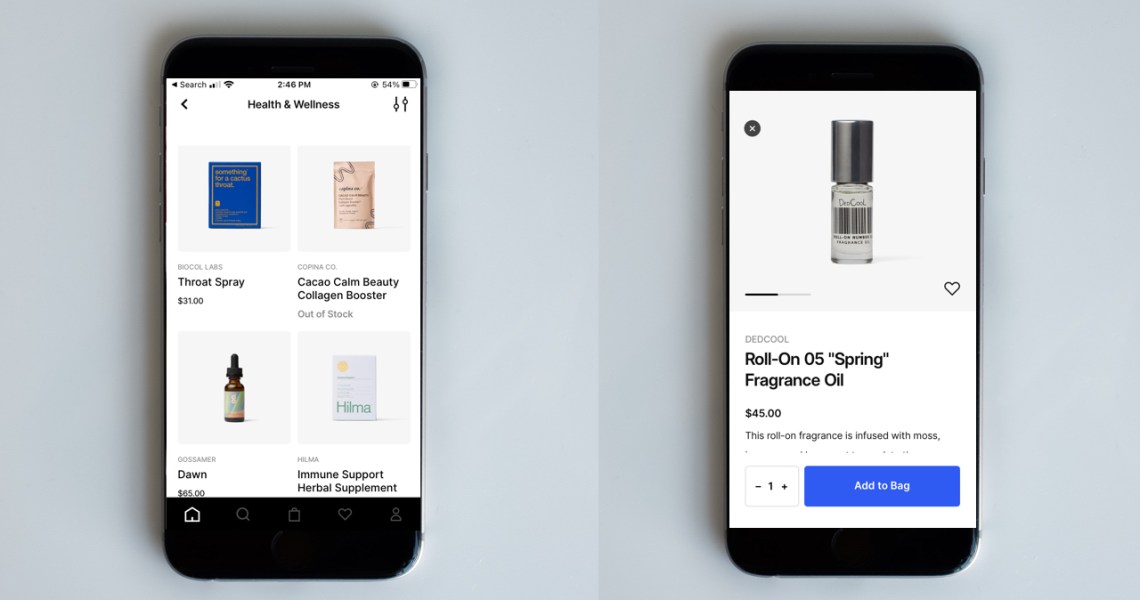The pandemic spurred beauty brands’ adoption of two-hour delivery, and they’re not stopping now — even with hope for normal life on the horizon.
Instant delivery platforms such as FastAF, Instacart, Doordash, Postmates and Uber Eats have been quickly growing their list of official beauty brand partners. Curated two-hour delivery platform FastAF, for example, recently expanded its coverage area beyond Los Angeles and New York, to San Francisco and Miami. The app has added an assembly of cult beauty brands to its lineup with Goop, Dedcool, Dieux, The Feelist, Olaplex and Fur, among other new partners, in recent months. And for Mother’s Day 2021, The Honest Company is teaming up with Doordash for a set of last-minute gift baskets featuring the brand’s beauty and body care products.
Over 50% of brands stocked on FastAF are official brand partners now, said Lee Hnetinka, founder and CEO of FastAF. New arrivals join trendy names such as Dr. Barbara Sturm, Byredo, Aesop and KNC Beauty. With free delivery on purchases of $30 or more, the app saw its sales double from the fourth quarter of 2020 to the first quarter of 2021, with 63% week-on-week growth during the 2020 holiday season. FastAF has raised awareness through influencer marketing and counts Olivia Culpo as an official partner, while brands such as Dieux have promoted exclusive sales via their own social channels. Beyond beauty, it has hosted buzz-generating sales of coveted items like the latest PlayStation and clothing by streetwear brand Fear of God.
“We create a lot of exclusivity with the products,” said Hnetinka. In March 2021, Dieux opted to use the app to sell its sold-out eye masks before restocking them on its own site. Meanwhile, The Feelist’s face oil has become the most popular beauty product on the app after launching in February 2021.
Carina Chaz, founder of buzzy fragrance label Dedcool, launched the brand on FastAF two months ago.
“For now, I think it’s best we stick to a more curated version of instant delivery,” she said, when discussing why she chose the app for her brand. She also noted that the app’s wholesale model works better for smaller niche brands to appeal to consumer demand for fast delivery. “There’s just this Amazon instant gratification model that people love,” she said. “People are super impatient. Amazon has their own trucks and thousands of people delivering every second of the day. We are not that.”
“My initial strategy when I launched was to be in select brick-and mortar wholesale stores,” said Carolyn Yachanin, founder and CEO of vegan collagen brand Copina Co., which is stocked at trendy retailers like L.A.-based Erewhon and recently launched on FastAF. “The pandemic has definitely accelerated how I’m looking at the online channel,” she said. “There is a consumer expectation about getting products quickly, and as a small brand, you need to fulfill that expectation.”
Ad position: web_incontent_pos1
As a result of the pandemic, these delivery channels are becoming a part of brands’ longer-term business models, even with some pre-Covid store behavior expected to resume.
“I personally like shopping in stores, but I’m not sure the traditional consumer is going to go back to shopping in person,” said Chaz. Wholesale is currently 30% of the brand’s total business, while DTC makes up the rest. “These brick-and-mortar stores have to pivot to an online presence, as well as get creative and figure out other ways where customers can experience [their brand].”
“People love the experience of discovery as actually feeling something in their hands,” said Yachanin. “I’m not looking to 100% replace the physical in-store experience; I don’t think that can be replaced. But in the modern world, online is an enormously valuable way to curate my product. Curating the customer experience and being customer-friendly is so connected with delivery time.”




